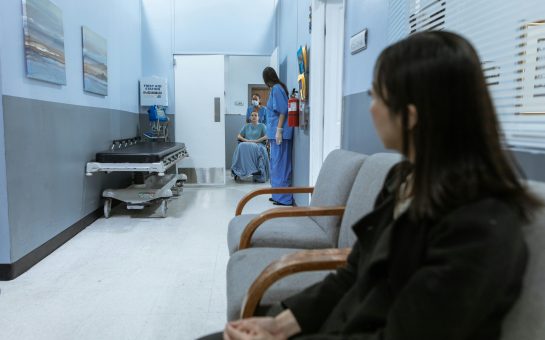Support services for eating disorder carers are now available in south west London, in the form of telephone calls and Zoom support groups.
Beat, the UK’s leading eating disorder charity, launched the services Nexus and Solace in response to a 233% increase in requests for support from carers between 2020-2021.
From April 2019 – March 2020, Beat received 1108 requests for support to its helpline services from London-based carers, but from April 2020 – March 2021, it received 3639 requests.
Caroline Price, director of Beat services said: “Thousands of people with loved ones with eating disorders have been reaching out to us during the pandemic, and it has been a time of upheaval, stress and unpredictability for many.
“Caring for somebody with an eating disorder can be an isolating and confusing experience, and it is important that carers also look after their own mental health.”
Beat has been aiding the mental health of carers for decades, as their welfare is just as important as their loved ones’.
The charity has partnered with the Healthy London Partnership, who aim to improve the health and wellbeing of Londoners.
It is also working with south west London’s three NHS-led mental health inpatient provider collaboratives for young people.
New support services
Nexus is a weekly telephone service for carers, parents, and siblings.
Beat provides trained advisors for carers who want to talk through their experiences while imparting techniques to help their loved one towards recovery.
Solace is a peer support group hosted over Zoom, where carers can connect and empathise with others in similar situations.
The sessions are facilitated by eating disorder services and led by the carers.
Price added: “Our advisors provide specialist guidance based on each person’s specific situations, such as how to set boundaries at home and support people with meal plans.”
“We hope that by continuing to expand our support services, carers will feel more empowered and confident when supporting their loved one and will also be better equipped to take care of their own mental health.”
Eating disorder recovery
Eating disorders can be overcome with the provision of help and support from local GPs, helplines, and therapy sessions.
Recovery figures for eating disorders derive from average percentages across various studies, so they do not add up to 100%.
Therefore this average gives a greater degree of accuracy as academic research into eating disorders is limited.
Eating disorder carers in south west London can now contact their GPs who will refer them to Beat’s new support services.
Impact of the pandemic
Chief executive of South London and Maudsley NHS Foundation Trust David Bradley said: “The Covid-19 pandemic has placed an enormous amount of stress on individuals, and I would urge anyone who is concerned about a child or young person to talk to your GP.”
Many carers witnessed a loved one become unwell due to the loss of usual routines and increased isolation during the pandemic.
However, awareness of this has risen over the past year.
Eating disorder cases have risen during the pandemic.
Additionally, more than two-thirds people who were diagnosed prior to the pandemic have had their symptoms become either moderately or much worse since it began.
Beat’s helpline reflected this as it reached a demand of over 300% at its peak – higher than pre-pandemic levels.
Price explained: “For some who already had an eating disorder their illness has worsened, more people have developed an eating disorder for the first time, and others who thought they had recovered from their eating disorder have relapsed.”
Now, Beat’s new services are successfully helping families dealing with members who have eating disorders.
One Nexus user said: “We were desperately worried about our daughter who has anorexia before I started Beat’s sessions.
“After their gentle guidance and support I now feel emotionally and physically able to support our daughter.
“The impact of what I have learned has meant a significant improvement in our communication and relationship.”
Beat provides year-round support though helplines, texts, email, and online support including message boards and support groups.
It also provides expert training for health and social care professionals and schools.
More information at: https://www.beateatingdisorders.org.uk/.




